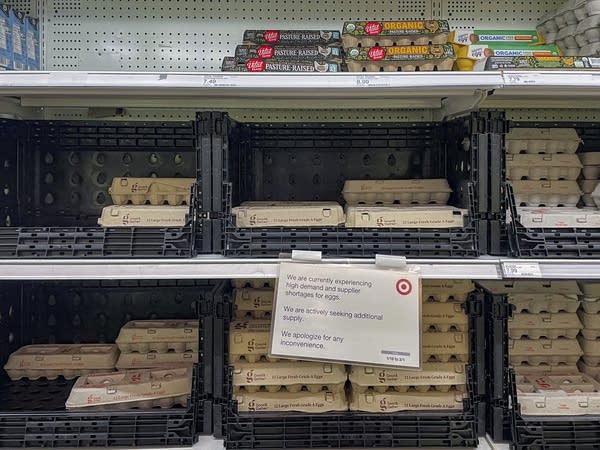The ongoing outbreak of avian flu is creating challenges for small businesses across the United States, leading to egg shortages and rising prices.
The flu has resulted in the culling of millions of chickens, severely affecting egg production. As a result, small businesses, particularly in the food service industry, face increased costs and supply chain disruptions.
Farmers are facing losses as they are forced to slaughter infected poultry to prevent the spread of the disease.
With egg production limited, farmers are struggling to meet growing demand, causing further strain on the industry.
Local bakeries and restaurants, which rely on eggs as a key ingredient, are dealing with dwindling supplies and rising costs.
Grocery stores are also feeling the pinch, with shelves that once held cartons of eggs now sparsely stocked.
Shoppers are encountering higher prices, leading to frustration and altered buying habits. Some consumers are opting for egg substitutes or buying fewer eggs altogether.
Experts are stressing the importance of biosecurity in the poultry industry to prevent future outbreaks.
Industry leaders are calling for increased collaboration between government agencies, farmers, and scientists to develop better preventive measures.
In response to the crisis, some states have initiated financial aid programs for farmers impacted by the outbreak. There is also a focus on research to develop vaccines and other solutions to combat the flu.
While chicken meat prices have also fluctuated, they have not been affected as severely as egg prices. The situation remains dynamic, with industry observers monitoring developments closely.
Efforts are being made to streamline communication between farmers, suppliers, and retailers to minimize disruptions in the egg and poultry supply chain.
Despite the challenges, many small businesses are adapting, finding innovative solutions, and working to remain operational.

